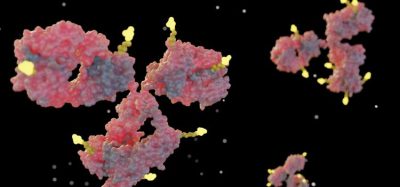Pfizer achieves novel EU approval for prostate cancer treatment
Posted: 9 January 2024 | Catherine Eckford (European Pharmaceutical Review) | No comments yet
TALZENNA® is the first PARP inhibitor approved in combination with XTANDI for metastatic castration-resistant prostate cancer (mCRPC) in the EU.


Pfizer’s oral poly ADP-ribose polymerase (PARP) inhibitor TALZENNA® (talazoparib), in combination with XTANDI® (enzalutamide) has been approved for prostate cancer by the European Commission (EC).
TALZENNA the first and only PARP inhibitor licensed in the EU for use with XTANDI for patients with mCRPC, with or without gene mutations”
The treatment is indicated for adults with metastatic castration-resistant prostate cancer (mCRPC) in individuals where chemotherapy is not clinically indicated.
Therefore TALZENNA the first and only PARP inhibitor licensed in the EU for use with XTANDI for patients with mCRPC, with or without gene mutations, Pfizer confirmed.
Mechanism of action for Pfizer’s TALZENNA
PARP has a role in repairing DNA damage. Preclinical studies have shown TALZENNA is capable of blocking PARP enzyme activity and trapping PARP at the site of DNA damage. This results in less cancer cell growth and death, according to Pfizer in a statement.
Approval of this treatment is based on data from the Phase III TALAPRO-2 trial. Results from the study’s Cohort 1 were published in The Lancet. Data showed that TALZENNA plus XTANDI reduced the risk of disease progression or death by 37 percent versus placebo plus XTANDI. This met the study’s primary endpoint of improving radiographic progression-free survival (rPFS), Pfizer stated.
“Today’s approval of TALZENNA in combination with XTANDI represents an important advancement for men living with prostate cancer in Europe,” shared Dr Chris Boshoff, Chief Oncology Officer, Executive Vice President, Pfizer. “The results from the pivotal TALAPRO-2 trial showed that this combination offers an effective treatment that addresses disease progression in patients with or without any specific gene mutation.”
While a key secondary endpoint, favouring TALZENNA plus XTANDI was also observed, these data are immature, Pfizer noted. Safety of TALZENNA plus XTANDI in the TALAPRO-2 trial was found to be generally consistent with the known safety profile of each medicine.
Pfizer also highlighted that TALZENNA in combination with XTANDI was approved by the US Food and Drug Administration (FDA) for the treatment of adult patients with HRR gene-mutated mCRPC in June 2023.
Related topics
Anti-Cancer Therapeutics, Biopharmaceuticals, Clinical Development, Clinical Trials, Drug Development, Drug Markets, Industry Insight, Regulation & Legislation, Research & Development (R&D), Therapeutics
Related organisations
Related drugs
Related people
Related diseases & conditions
Cancer, metastatic castration-resistant prostate cancer (CRPC)









